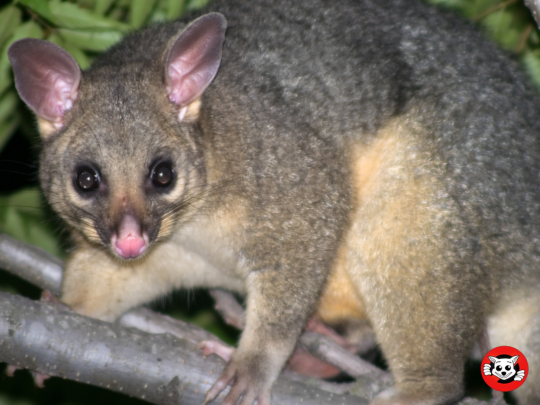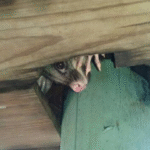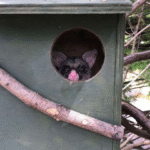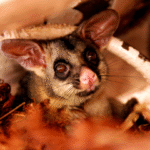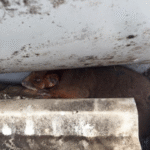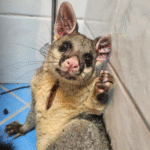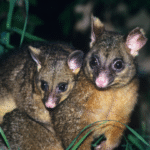Possums are an integral part of Australia’s unique ecosystem. These furry creatures often find themselves at odds with human habitats, mainly as urbanisation spreads into natural areas.
However, treating possums as pests and removing them without care can lead to significant ecological problems. This is where possum relocation steps in, not as a nuisance management method but as an essential practice for environmental protection. Humane possum relocation safeguards these animals and fosters a more balanced and thriving ecosystem.
Why does this matter? Let’s break it down for you.
The Environmental Importance of Possum Relocation
Many fail to realise that possums are key players in maintaining biodiversity and supporting our environment’s natural functions. Relocating possums in an ethical, humane manner ensures they can live and contribute effectively to the ecosystem rather than being harmed or displaced.
1. Preserving Biodiversity
Biodiversity underpins the health of our planet. Possums are essential to Australia’s biodiversity because they play several roles in the natural ecosystem. These marsupials eat fruits and seeds, dispersing them as they move across the land. This natural seed dispersal helps regenerate plants and forests, encouraging healthy vegetation growth.
When possums are harmed or displaced without relocation, their absence creates gaps in the ecosystem. Such gaps can lead to imbalances in plant regeneration and even increased vulnerability to invasive species that may disrupt the natural environment.
2. Protecting Local Habitats
Without humane relocation, possums may be driven out of urbanised areas through unethical practices that harm the possum population and the environment. For example, harming possums or destroying their nests outright diminishes their population and disrupts local food chains. Since possums consume insects and contribute to soil enrichment, they help keep local habitats balanced and thriving.
Humane relocation addresses this problem directly by moving possums to areas where they can thrive naturally. This ensures they don’t lose their role in the ecosystem and are prevented from straying into residential spaces where conflicts with humans are likely.
3. Mitigating Habitat Destruction
Urbanisation is one of the leading causes of habitat destruction for native species, and possums are no exception. Their natural homes, hollowed trees or deadwood, are often removed to make way for developments, leaving the animals stranded or migrating into suburban houses.
Possum relocation ensures that these animals are carefully moved to stable and suitable habitats instead of being eradicated or left stranded. This reduces the impact of urbanisation on their populations and helps mitigate habitat destruction, ensuring a more sustainable coexistence between humans and wildlife.
The Humane Process of Possum Relocation
You might wonder how possum relocation is carried out in a humane and environmentally responsible way. The process is far more thoughtful and methodical than simply catching and releasing them elsewhere.
1. Identifying the Problem
The first step often involves identifying areas where possums have taken up residence in urban environments, such as roofs, sheds, or gardens. Understanding how and why possums have moved into these spaces is critical to determining a sustainable relocation strategy.
2. Safeguarding Urban Spaces
Before relocating the possum, professionals ensure that the area is possum-proofed. This involves sealing common entry points, such as holes in roofs, sheds, or vents, and trimming tree branches that give possums easy access to buildings.
To prevent recurring issues, professional possum relocation services often adjust urban areas before moving possums. This ensures that relocated possums do not return to human spaces or interfere with urban ecosystems once they are rehomed.
3. Moving Possums to Suitable Habitats
Once captured, possums should be relocated within their natural home range. Moving too far can put an unwelcome strain on them, as they are territorial animals and tend to thrive best in familiar environments. Relocation experts ensure the new habitat provides ample resources like food, shelter, and protection from predators.
4. Monitoring Outcomes
A crucial, often-overlooked part of humane possum relocation is follow-up monitoring. This ensures that relocated possums can settle successfully into their new environment. Ethical relocation methods prioritise their well-being while preserving the balance of the ecosystem they inhabit.
Long-Term Benefits to Ecosystems
Humane relocation has profound, long-term effects on local ecosystems when carried out correctly. Here’s how relocating possums helps ensure healthier ecosystems:
1. Reduced Human-Wildlife Conflicts
By relocating possums back to appropriate habitats, residential areas experience fewer interruptions from wildlife. This reduces stress for people looking to protect their homes and for possums seeking safety. Happier cohabitation means less intervention is required in the long run, simplifying environmental management.
2. Sustained Natural Cycles
Possums are important for pollination and seed dispersal. When removed without ethics or care, the natural cycles supported by possums begin to collapse. Ethical relocation safeguards these cycles, promoting forest growth, healthy soil, and vegetation diversity essential to local wildlife.
3. Support for Other Native Species
When possums thrive, they allow other native species to coexist and prosper. Relocation strengthens the foundation of biodiversity by preventing disruptions to their role in the ecosystem.
Why Supporting Possum Relocation Matters
Now more than ever, humans can lead efforts in environmental protection and show respect for native wildlife. Humane possum relocation allows us to play a role in protecting the environment. Supporting this method ensures a win-win situation where humans can safeguard their homes and possums can coexist peacefully without harming the planet’s ecological balance.
If you’re wondering how to help, you don’t need to undertake this alone. Contact Possum Busters, specialising in managing possum populations ethically and effectively.
Possums are allies, not threats, to the environment. By supporting humane possum relocation, you preserve biodiversity, protect habitats, and foster a sustainable relationship with the natural world. If you’re facing issues with possums or want to support ethical relocation efforts, contact experts to ensure the best outcome for your home and the ecosystem.
Together, we can make a difference. Choose Possum Busters for humane possum relocation today and take one small but powerful step toward environmental protection.

